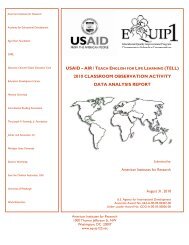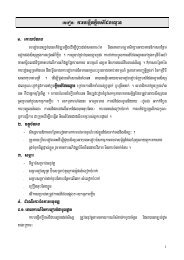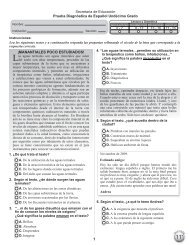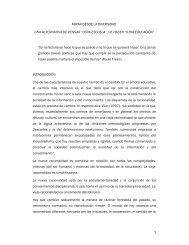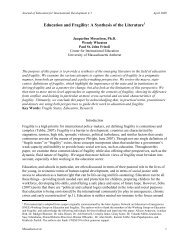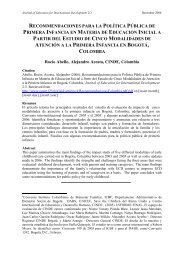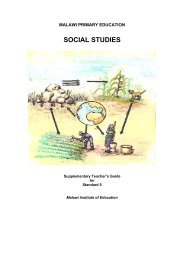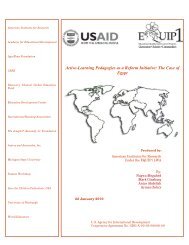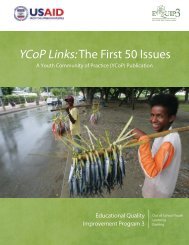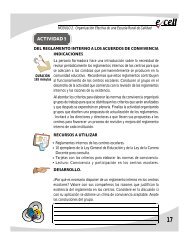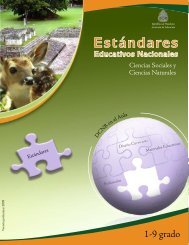The Power of Persistence: Education System ... - EQUIP123.net
The Power of Persistence: Education System ... - EQUIP123.net
The Power of Persistence: Education System ... - EQUIP123.net
Create successful ePaper yourself
Turn your PDF publications into a flip-book with our unique Google optimized e-Paper software.
Two characteristics <strong>of</strong> the 2003-2008 era should be noted: the extent to which<br />
Ministry has built on the BESSIP experience, and the change in Ministry<br />
engagement <strong>of</strong> Cooperating Partners and Technical Assistance. At the start<br />
<strong>of</strong> the MOESP, many <strong>of</strong> the Ministry staff that had worked in the BESSIP PIU<br />
transitioned to leadership roles in the Ministry bringing with them the technical,<br />
management, and planning experiences. In the transition to MOESP, MOE use<br />
<strong>of</strong> donor technical assistance (TA) became more demand driven, with a focus<br />
on using donor TA for capacity building and later providing expertise based<br />
on identified needs. As the SWAp has evolved donors continued to prioritize<br />
certain types <strong>of</strong> support including support to Community Schools, EMIS,<br />
institutional strengthening and reaching Zambia’s most disadvantaged youth;<br />
and remain engaged in the policy and planning dialogue with continued funding<br />
for research, analysis and institutional reviews. Much <strong>of</strong> this support, though<br />
aligned with broader MOEST goals and strategies, was programmed through<br />
project mechanisms.<br />
In the case <strong>of</strong> community schools, the collapse <strong>of</strong> the Zambia Community<br />
Schools Secretariat (ZCSS) in 2005, the presence <strong>of</strong> USAID projects working<br />
on community schools and community schools policy at all levels, and the<br />
availability <strong>of</strong> USAID FTI funding provided a critical juncture and opportunity<br />
for donors and the MOEST to support the integration <strong>of</strong> these schools into<br />
the system. Previously, ZCSS was looked to address issues <strong>of</strong> community<br />
school oversight and management. Between 2006 and 2008, donors provided<br />
technical assistance to the Ministry to develop <strong>of</strong> a policy framework for<br />
community schools, support revision <strong>of</strong> the 1966 <strong>Education</strong> Act to support the<br />
legal establishment <strong>of</strong> these schools, and include community schools into the<br />
Ministry’s Fifth National Development Plan Implementation Framework. This<br />
work has helped create an enabling policy environment and clear guidelines for<br />
Ministry oversight <strong>of</strong> community schools, and has more fully integrated them<br />
into Ministry management and administrative systems.<br />
SECTION 2: lESSONS fROM COUNTRY CASE STUdIES<br />
115



